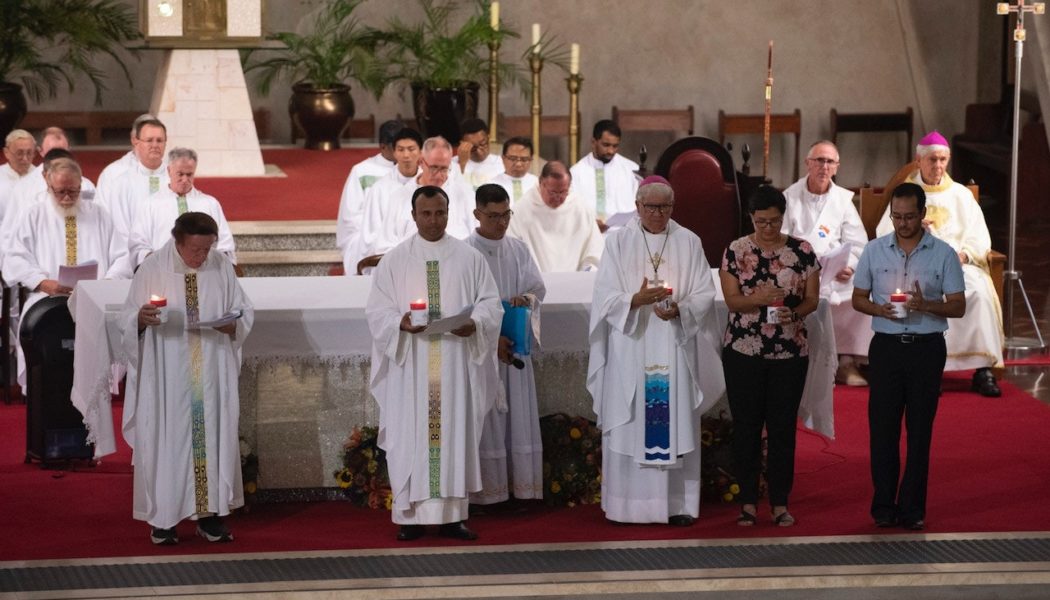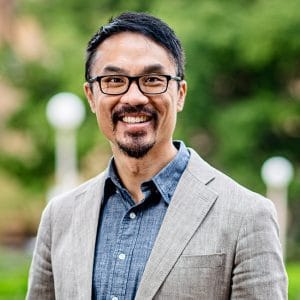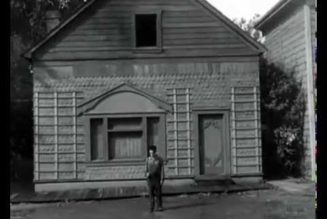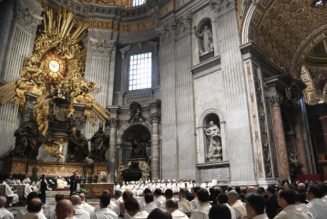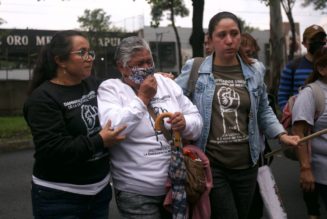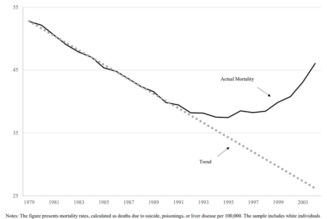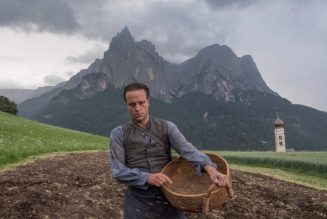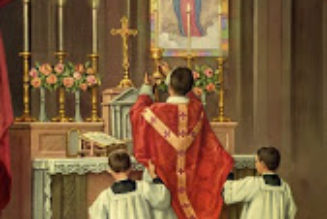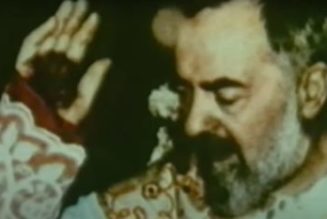The first session of Australia’s plenary council begins Oct. 3 with a seven-day initial assembly.
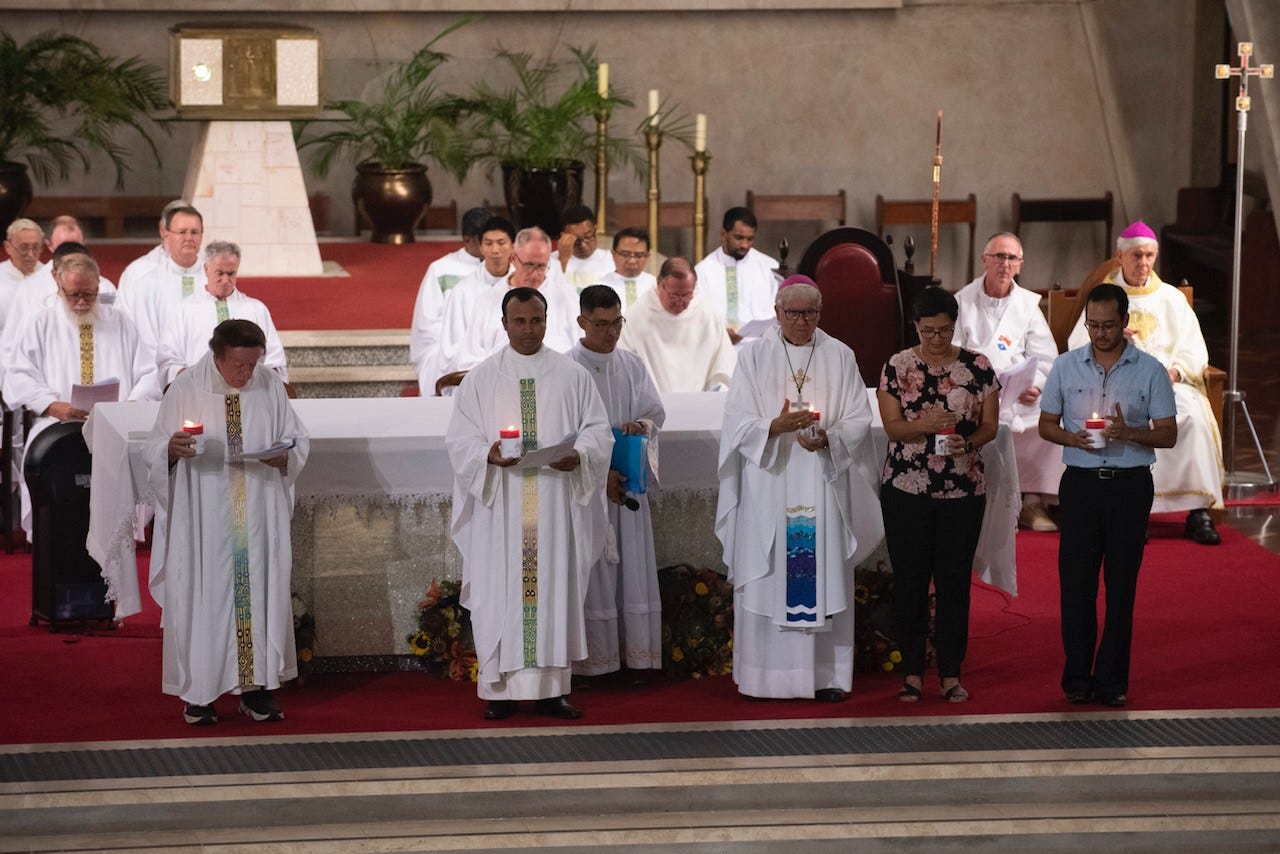
Not sure what a plenary council actually is? Read all about it, right here.
Throughout the plenary council, The Pillar will aim to bring you voices from inside the assembly, who can offer their own unique perspectives on what’s happening during a historic meeting ‘Down Under.”
As the council begins, The Pillar spoke with Daniel Ang, who is director of the Archdiocese of Sydney’s Centre for Evangelisation, and will serve as a theological adviser to plenary council delegates.
Where did the Australian plans for a plenary council begin?
The bishops of Australia have been building toward a national ecclesial event, involving all dioceses and eparchies, since 2001. St John Paul II’s apostolic letter Novo Millennio Ineunte was an initial inspiration for the idea, the pontiff calling for a renewed ‘spirituality of communion’ within the Church; that is, a spirit of ecclesial life that is capable of drawing humanity into unity with God and one another and that supplies ‘institutional reality with a soul’ (NMI 45).
It’s no secret that the enthusiasm of the Australian bishops for such an ecclesial gathering was initially somewhat muted. Then, in 2012, a ‘Year of Grace’ was announced, initiated by the Australian Catholic Bishops Conference (ACBC) and dedicated as a year of prayer and discernment for Catholics, of ‘contemplating the face of Christ’ in order to renew the Church’s self-understanding and practice as a communion.
Then, in 2013, came the election of Pope Francis. By his papal exhortations and recasting of the synod – not only as an organ of governance but as a process by which the sensus fidelium could be discerned – the ‘pope of the peripheries’ placed clear emphasis on the Church’s need to gather and journey together in discernment of the Holy Spirit, the principal agent of its life and mission.
Building upon John Paul II’s inspiration, Pope Francis affirmed that the Church of the third millennium was to be marked by the disposition of ‘synodality’. This mode of ecclesial life called for the Church’s closeness to the lived situation of all of God’s faithful and others beyond, especially the poor, and attentiveness by the People of God to the instinct for the truth of the Gospel which has been given by the Holy Spirit to the baptized faithful as ‘one, holy, catholic and apostolic’ Church.
In the same year and month of Pope Francis’ election, a Royal Commission into Institutional Responses to Child Sex Abuse commenced in Australia, having been announced by the federal government in November 2012. A searing but necessary grace for the Catholic Church, the Royal Commission, its investigations and witness testimony revealed a harrowing history of child sexual abuse within the Church, in Australian parishes and schools as well as other Catholic institutions and agencies for which the Church continues to repent, for crimes too often committed or denied.
While there are a confluence of factors that renders this plenary council a historic and necessary opportunity for the Church in Australia, the inspiration of Pope Francis, the need to confront our own dark history, and to re-approach and embody anew the mission of Christ in light of those two influences is clear, I think.
The first of two assemblies that constitute the plenary council will begin this Sunday 3 October and will be held almost exclusively online due to ongoing restrictions related to the COVID-19 pandemic. This start date is just a fortnight before the three year process toward the universal ‘Synod on Synodality’ begins in earnest. The second assembly at which consultative and deliberative votes will take place is to be hosted in Sydney, the birthplace of the Church in Australia, in early July 2022. So, it is anticipated that the Australian experience of the plenary council will have something instructive to offer to the wider Church as it looks to reflect on what ‘synodality’ means in practice.
Daniel, who has been involved in planning for the council? What kind of support has there been for it? What about skepticism?
While the Catholic Church is no stranger to the synod, of which there have been a few in recent decades, only two other plenary councils have been celebrated since the Second Vatican Council, one in Poland and the other in the Philippines, both in the early 1990s.
Like its predecessors, the forthcoming ‘Aussie’ version will see a gathering not of the bishops as individuals but of the local or particular churches in communion with one another. This has required and seen in practice the involvement and discussion of diverse groups of Catholics in Australia, including those belonging to Eastern Rites, Indigenous Catholics, the disaffected, and others besides, all of whom have given a measure of prayer and discernment to the fundamental question: ‘What is God asking of us in Australia at this time?’
Over the past three years, this extensive process of listening and dialogue has been led by a national facilitation team appointed by the bishops’ conference and local coordinators have assisted in each diocese.
Many Catholics in Australia have shown great enthusiasm and commitment to the process, while others have lent their voice and insight with reserve, with a natural skepticism borne of past experience or lingering questions regarding what, if anything, might be possible on what is for many an unfamiliar path. Others still have chosen to be bystanders on the road to the plenary council, content to watch the process unfold without contribution.
In speaking to Catholics in this last category, such non-engagement expresses reticence about the value of dialogue within the Church per se, a hermeneutic of suspicion about the purpose or potential outcomes of the plenary council, detachment from the broader life of the Church, often in preference for more local concerns, resignation to the status quo or plain indifference.
Nevertheless, an impressive 220,000 people participated in the listening and dialogue process in one form or another, with over 17,000 submissions made toward the preparation of its Instrumentum Laboris or ‘working document.’ The final agenda which emerged from the working document for the Council is structured in the form of 16 questions, spanning themes as diverse as parish and diocesan structures, ecology, liturgy, learning from the insights and experience of Indigenous Australians, issues of governance, and the future of Australia’s immense Catholic education system and that of its social support agencies, among others.
A clear and common pastoral concern in Australia is the decline in Mass attendance in parishes, with some experiencing weekly attendance rates as low as 4%. The largest diocese in the country, Melbourne, maintains an attendance rate of 13% while for the Archdiocese of Sydney it is 15.7%, the highest in the country. While these statistics still are discomforting, the condition of the Church in these two cities has remained relatively steady as a result of the higher proportion of migrant communities and university educated Catholics in each, the two demographics that significantly influence Mass attendance in Australia, according to the National Centre for Pastoral Research.
Discussing and providing advice on these matters at the Council will be 278 delegates gathered with twenty or so theological advisors (or periti) and a number of observers, including from other faith communities. The foundational documents and agenda which will guide the process of dialogue and discernment at each assembly are available online and some sessions at the assemblies will be live-streamed.
Australia has a unique history as a Church. In your view, how has that played into preparation for the synod?
In anticipating the deliberations at the plenary council, it is helpful to note that the concerns and priorities of the Catholic Church in Australia are shaped not only by the popes and ecclesial events of the past decade but also by the particular story of its foundation as a Church.
The Catholic community in this country began as a small colony of the Irish Church and was, on the whole, a despised and mistrusted presence in the early British settlement. The experience of sectarianism and exclusion of Catholics from public life in Australia continued well into the mid-twentieth century.
In response to these conditions, it has been observed that the Catholic Church in Australia was in its first expression essentially a building project, with parishes paid for, built and maintained by the communal efforts of hardworking Catholics under the authority of their priests. Parishes served as centers of social identity and community pride for many newcomers in a strange, insecure and often hostile environment. Today the Irish influence remains, not only in the names of our parishes but also in the sheer number of them, with a church to be found in almost every ‘village’ or Australian suburb.
The Irish Catholics also brought with them the influence of the ‘French school’ of spirituality and its stress on the grandeur and transcendent power of God in stark contrast to the weakness and frailty of the human condition. This breach required the mediation of the priest and led in practice to what has been described as a more authoritarian rather than prophetic style of ecclesial leadership.
These Irish foundations were followed by waves of post-World War II immigration from Europe and then Asia which has shaped the increasingly cosmopolitan character of Australian culture over the past half-century. This changing face of Australian society has not come about without effort or intentionality, nor without social tension or anxiety.
While most Australians are marked by a fairly relaxed nationality, there remains a good degree of self-questioning about the substance of Australian identity in light of its diverse composition, the forced displacement and continued disadvantage suffered by many Indigenous Australians, and the nation’s tendency to define its character by the sacrifices of war. Hence, questions persist for us about the suitability and tenor of national celebrations such as ‘Australia Day’, now fiercely disputed, and the value and extent of multiculturalism and immigration per se, issues which continue to rear their ugly head in our federal elections.
It is also true that while such matters hover in the air without resolution, other less demanding concerns can prevail in the sentiments of many Australians, including pursuit of their wordless and romantic affinity with the open spaces of the beach and the outback. While the vast majority of Australians live in cities, pinned between the sea and desert, it has been not unfairly claimed that the Australian soul resides among sunburnt farms and twisted eucalypts, that it prefers the silent adoration of nature over the verbose, contrived and conceptual.
Indeed, Australians tend not to be speculative or overtly intellectual in nature but pragmatic, even utilitarian. This is mirrored in the microcosm of parish life where Catholics past and present could be more likely found organizing groceries and handouts for the needy through their local St Vincent de Paul Society conference or rolling up their sleeves for the parish working bee, than debating systems of thought or cogitating on the finer mysteries of God’s Kingdom.
If not competing with the communion offered by the beach and bush, then religious practice among Catholics in Australia has been eclipsed by that other sacred activity: the religion of sport. Indeed, it’s not coincidental that sporting events and natural disasters consistently galvanize Australians in a way that ideas and traditional religious symbols and rituals do not. It is from in these external and spontaneous events that many Australians experience a keen sense of solidarity and communion (known, indistinctly, as “the Aussie spirit”). It is at these ‘loud’ and dramatic moments that the easy-going and resilient nature of our own becomes excited and energized in common, less so in the quiet and belonging of the Catholic parish as was once more commonly the case.
And how will the plenary council take those things into account?
I think it can be appreciated that the plenary council will take place in view of the questions and challenges of Australians today but it is also shaped by historical influences that provide context for thinking about our distinct future as a Church.
For instance, the need for many dioceses to review and reconsider their structures is the outcome of generations of Catholic ‘builders’ – lay, clerical and religious – who have bestowed to Catholics in Australia with an array of parishes, schools and other institutions from which they benefit, sometimes without recognition. However, participation rates have left some of these ecclesial bodies, the parish, especially, under stress.
A more intentional approach is called for in the structure and charism of these ecclesial realities so that the gifts of community, the temporal resources, and the rich and diverse vocations we have witnessed in our short history as a Church (e.g. St Mary of the Cross MacKillop and Servant of God Eileen O’Connor) are there in and for future generations of believers. It demands of us a pastoral strategy that can no longer rely on historical momentum or immigration for its life but must renew itself that has to pursue renewal through a re-kindling and formation of that personal discipleship which, as a gift of baptism and the Holy Spirit, is at the source of the Church’s vitality and mission in community.
As well, we see that the decline of participation in Catholic worship in this country has not, in the main, been on account of fierce intellectual or moral objection to Catholic doctrine, but to the plain fact that when many Australians go to church they don’t feel like they “get anything out of it”. Jesus’ vision of the Kingdom of God, the goodness of the Church and the full life of discipleship calls to be proclaimed and embodied anew, lest Catholics and other Australians reject a Gospel or Catholicism that they have barely encountered or in which they found no little or no practical implication.
As a part of this renewal of participation must be the renewal of our Catholic families, with marriage at their center. Addressing this ‘vocations crisis’ in the family is critical to the Church’s future in Australia as elsewhere. As we know from our history,We know from our history that the Catholic family needs the nourishment and support of Christian community, as much as our parishes and Eucharistic communities depend on families for their life and apostolate, for the building up of the Church in new and localized ways.
In the face of social tensions and ‘dog-whistling’ on race or immigration that lie beneath the surface of Australian discourse about its identity, the Catholic community in Australia can also serve as a real and effective sign and effective witness of to that ‘spirituality of communion’ that first inflamed the instincts of the Australian bishops to journey toward the occasion of the plenary council some two decades ago. The breadth and depth of our tradition, in its preferential option for the poor and vulnerable, the unborn and the elderly, and the welcome of the newcomer and the stranger, are not unknown to Catholics in Australia who have long exercised a practical charity that has seen borders and difference not as dividing lines but as places of and opportunities for meaningful and enriching encounter.
So while our national spirit pulls toward a focus on the present rather what might be, on action and practice rather than on grand schemes or visions, the plenary council offers Catholics in Australia a historic opportunity to bring God’s vision and persistent presence, given in Jesus Christ, ‘down to earth’, to bear on the ordinary lives of Australians and our society as a whole in the power of the Holy Spirit. In responding to the call of Pope Francis to become more deeply a Church of community, mission and participation, the peripheries ‘down under’ might contribute something of its creative fidelity to ‘the center’, in the form of a ‘synodality’ with a distinctly Australian accent.
Join Our Telegram Group : Salvation & Prosperity
